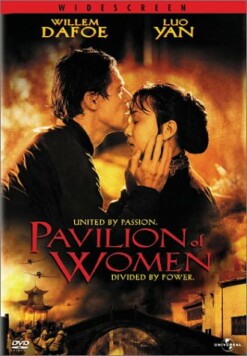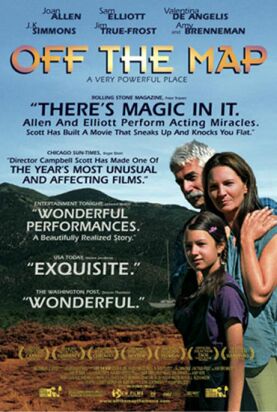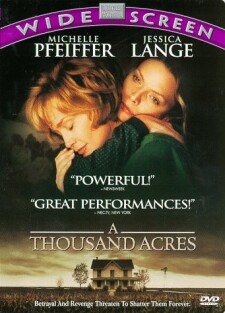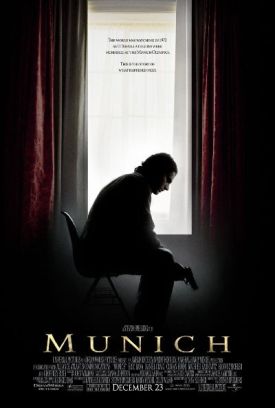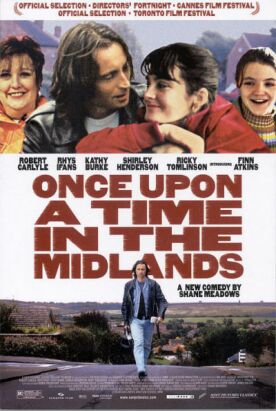Pavilion of Women
Pavilion of Women is possibly the most perfectly awful movie I have
seen this year. It is also a sad indication of the extent to which Hollywood, in
seeking to demonstrate liberal good-will towards the
People’s Republic of China, will
swallow without a murmur propaganda that would be laughed off the stage if it
came from any other source. It helps, of course, that deference to the tyrants
of Beijing, past and present, is on this occasion complemented by deference to
feminist mythology concerning the original sin of
“patriarchy.”
Because both demonize what they find it convenient to call the
“feudal”
period of Chinese history—though in
fact the film is set in the pre-communist period of the republican era, in the
late 1930s—they find it convenient to
forget that the communist bureaucracy whose triumph is looked forward to here
was then and to a large extent remains today profoundly patriarchal.
The alliance between these two allegedly
“revolutionary”
forces is further strengthened by the predisposition of the arts in general for
the last century or so, and the cinema in particular for the last three decades
or so, to smile on any combination of theses, no matter how internally
contradictory, which debunk or subvert traditional institutions or mores. This
kind of thinking has its origins in the 1960s when, in spite of the historical
evidence about actual revolutions, all of which had been led by dedicated,
ruthless and ascetic men, sex, drugs and rock
‘n’
roll came to be thought of as revolutionary forces. Few people seriously believe
that today, but it suits the book of the entertainment industry to pretend to
believe it, since teenagers with money are always happy to be told that
indulging their appetites is a noble and idealistic act.
Adapted by Luo Yan and Paul R. Collins from a novel by Pearl S. Buck and
directed by. Yim Ho, Pavilion of Women tells the story of Madame Wu (Luo
Yan), a winsome Chinese wife in the still-traditionalist China of 1938, who
having turned 40 decides to retire from her wifely duties to a loutish husband
(Shek Sau) by kindly providing him with a second wife, a simple but not
unhandsome peasant girl called Chiuming (Yi Ding). At the same time her eldest
son, Fengmo (John Cho) is deemed to be in need of some more education, to which
end a tutor is employed in the person of an American missionary-priest, Father
André (Willem Dafoe).
Lasik surgery is not required to spot a long a long way off that Chiuming and
Fengmo fall for each other while Madame Wu and Father André do likewise.
Fortunately for the morals of all four, the Japanese are on their way, and the
Second World War intervenes, incidentally providing Fengmo with the opportunity
to join the glorious Red Army under Chairman Mao. The happy upshot is that the
running dogs of capitalism and the feudal leftovers of early republican China
join the prototypes of those male chauvinist pigs so familiar to a later era and
the Japanese empire in the dustbin of history. The forces of progressivism thus
appear, as they so often do, as the sole representatives of dialectical and
ideological correctness.
Those of us who have spent some time picking over the dustbin of history,
however, might raise an eyebrow at the spectacle of a Roman Catholic priest of
the 1930s solemnly assuring a potential sinner that
“Love is never
sinful.” Priests, like other men, have
always been susceptible to sin, but it is only since Vatican Two (and not often
then, I fancy) that you would have been able to find a priest willing to claim
that acts which the Church has always and everywhere taught are sinful are not
sins at all. These little historical distortions have their uses, however, as
they help to create the illusion, so important to the
film’s purposes, that the Imperial
Japanese army took the field to enforce a stifling and traditionalist morality
upon an oppressed people yearning to breathe (and otherwise exercise their
bodies) freely and without restraint.
But when schools stop teaching history, or teach only the quasi-Marxist
version of history that is today approved for schools, it is hardly surprising
that rubbish like Pavilion of Women can be produced in Hollywood. The
movies have always tended to mythologize history, but the nationalist
mythologies that once found favor there have now given way to something much
more sinister and likely to cause endless trouble and grief to future
generations of those who will continue, in defiance of the spirit of the age, to
think of themselves as patriots.
Discover more from James Bowman
Subscribe to get the latest posts to your email.

